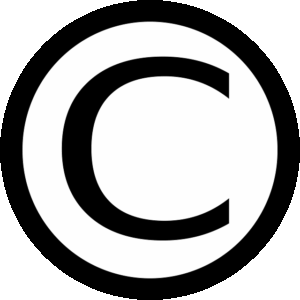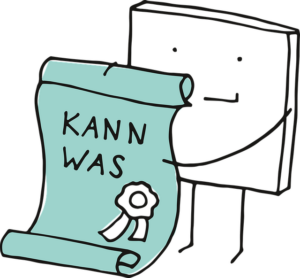Precision UK IP Document Translation: Navigating Legal Landscape with Expert Services
Intellectual Property (IP) documents require specialized translation services in the UK due to their complex legal terminology and regional nuances. These services, using expert linguists, ensure accurate conveyance of technical terms and cultural co…….

Intellectual Property (IP) documents require specialized translation services in the UK due to their complex legal terminology and regional nuances. These services, using expert linguists, ensure accurate conveyance of technical terms and cultural context, vital for international protection of innovative ideas. Choosing a reputable provider with native-speaker translators skilled in IP fields like patent law, trademarks, and copyrights is crucial for legally valid translations that safeguard sensitive information and IP rights within the UK market.
“Precision is key when translating Intellectual Property (IP) documents in the UK, where legal frameworks and terminology can be complex. This article guides you through the intricacies of navigating UK intellectual property documents with expert translation services.
From understanding the unique aspects of IP documentation to choosing the right service and implementing quality control measures, we explore strategies for accurate translations. Discover best practices to ensure effective communication and compliance in this critical area, leveraging UK IP document translation services to their full potential.”
- Understanding Intellectual Property Documents in the UK
- The Significance of Accurate Translation for IP Documents
- Challenges in Translating IP Documentation
- Choosing the Right Translation Service for UK IP Documents
- Techniques for Ensuring Precision in IP Document Translation
- Quality Assurance and Control Measures for UK IP Translations
- Legal Considerations for Translated Intellectual Property Documents
- Best Practices for Effective Communication through UK IP Translation Services
Understanding Intellectual Property Documents in the UK

Intellectual Property (IP) documents in the UK can be complex, encompassing patents, trademarks, copyrights, and designs. Accurate translation services for these documents are vital to ensure their legal validity and protection across international borders. Navigating IP law requires a deep understanding of both the local regulations and the nuances of each language involved.
Professional translation services specialising in UK IP documentation ensure precision by employing linguists with expertise in legal terminology and cultural context. They go beyond simple word-for-word translations, aiming to convey the intended meaning while adhering to the strict requirements of intellectual property law.
The Significance of Accurate Translation for IP Documents

In the realm of Intellectual Property (IP) documents, precise and accurate translations are paramount. These documents often contain intricate legal concepts and innovative ideas that demand meticulous handling during translation. UK intellectual property documents, in particular, require expert language professionals who understand not only the technical terminology but also the nuances of British English.
Accurate translations ensure that the original intent, value, and protectability of IP are preserved across languages. Inaccurate or imprecise translations can lead to misunderstandings, legal loopholes, or even misappropriation of intellectual property rights. Therefore, when it comes to UK IP documents, relying on professional translation services becomes crucial. These services employ native speakers with specialized knowledge in law and technology, ensuring that every term is translated correctly, facilitating seamless global protection and commercialization of intellectual assets.
Challenges in Translating IP Documentation

Translating UK intellectual property (IP) documents accurately presents unique challenges due to their highly specialized nature and complex terminology. IP laws vary across jurisdictions, making it crucial for translators to have an in-depth understanding of both the source and target languages. A single misstep can lead to misinterpretation, potentially causing legal issues or compromising the validity of the original document.
Professional UK translation services specializing in IP documentation employ native speakers with expertise in this field. They meticulously research and match terms to ensure consistency across the entire text. Advanced tools, such as machine translation and terminology databases, assist translators but never replace human expertise. This meticulous approach guarantees that the translated documents remain legally sound and precise, meeting the stringent requirements of UK intellectual property laws.
Choosing the Right Translation Service for UK IP Documents

When translating UK intellectual property (IP) documents, selecting a reputable and specialized translation service is paramount to ensuring accuracy and legal validity. The precision required for IP documentation demands translators with an in-depth understanding of both the source and target languages, as well as technical expertise in fields like patent law, trademarks, and copyrights.
Look for translation companies that offer native-speaker translators who specialize in IP document translation. They should have a proven track record and experience handling complex legal documents. Additionally, services that provide quality assurance processes, such as proofreading and editing checks, can guarantee the highest level of accuracy. Reputable firms also adhere to ethical practices and confidentiality agreements, ensuring your sensitive information remains secure throughout the translation process.
Techniques for Ensuring Precision in IP Document Translation

When translating UK intellectual property (IP) documents, precision is paramount to ensure legal validity and protect sensitive information. Professional translators employ several techniques to maintain accuracy in this specialized field. One key method is utilizing terminological databases and glossaries specific to IP law, ensuring consistent terminology across different documents. This is crucial for complex concepts like patents, trademarks, and copyrights, where precise definitions are vital.
Additionally, human reviewers with expertise in IP law scrutinize translations, cross-referencing them against the original text and industry standards. Machine translation, while efficient, is often complemented by these human eyes to catch nuances and legal subtleties that algorithms might miss. This meticulous approach guarantees that UK IP document translations are not just word-for-word but also conceptually correct, providing reliable support for intellectual property protection and management.
Quality Assurance and Control Measures for UK IP Translations

When it comes to translating UK intellectual property documents, Quality Assurance (QA) and Control Measures are paramount. Reputable translation services employ rigorous QA processes to ensure accuracy, consistency, and cultural adaptability. This includes multiple rounds of review by expert translators and editors who specialize in legal and technical language, as well as native speakers from the target market.
Advanced tools like machine translation memory, terminology databases, and automated quality checks are also utilized. These technologies help maintain terminological consistency throughout the document, capturing nuanced meanings essential to IP law. Moreover, post-translation inspections by quality assurance teams catch any remaining errors or inconsistencies, guaranteeing that UK intellectual property documents are translated with the utmost precision and professionalism.
Legal Considerations for Translated Intellectual Property Documents

When translating UK intellectual property documents, legal considerations are paramount to ensure the integrity and enforceability of the original content. Accurate translations must capture not just the meaning but also the nuances and technical terminology specific to intellectual property law. This includes understanding copyright, patent, and trademark regulations, as well as ensuring compliance with the UK’s unique legal framework.
Reputable UK translation services specializing in intellectual property documents are crucial for navigating these complexities. They employ translators with expertise in legal and technical fields, providing translations that not only meet linguistic standards but also adhere to legal requirements. This meticulous approach guarantees that translated intellectual property documents remain legally sound, preserving the rights and interests of all parties involved.
Best Practices for Effective Communication through UK IP Translation Services

When leveraging UK intellectual property (IP) translation services, best practices lie in meticulous attention to detail and a deep understanding of the legal nuances involved. Accurate translation is paramount as even minor errors can have significant implications for patent applications, trademark registrations, and other IP-related paperwork. Professional translators should possess expertise in legal terminology specific to the UK context. They must also be adept at preserving the intended meaning and structure of the original document.
Effective communication necessitates clear and concise rendering of technical concepts while adhering to cultural and linguistic norms. Using native language experts ensures that the translated documents are not only precise but also grammatically sound and easily comprehensible by UK authorities and stakeholders. Additionally, staying updated with any changes in IP legislation or industry-specific terminology is crucial for ensuring the translation’s relevance and accuracy over time.
Accurately translating UK intellectual property documents is paramount for global recognition and protection. Navigating the complexities of IP documentation requires a deep understanding of both the legal framework and linguistic nuances. Choosing reputable translation services specializing in UK IP documents, implementing rigorous quality assurance measures, and addressing legal considerations are essential steps to ensure precision and effectiveness in communication. By following best practices outlined in this article, individuals and organizations can harness the power of professional translation services to safeguard their intellectual property globally.






